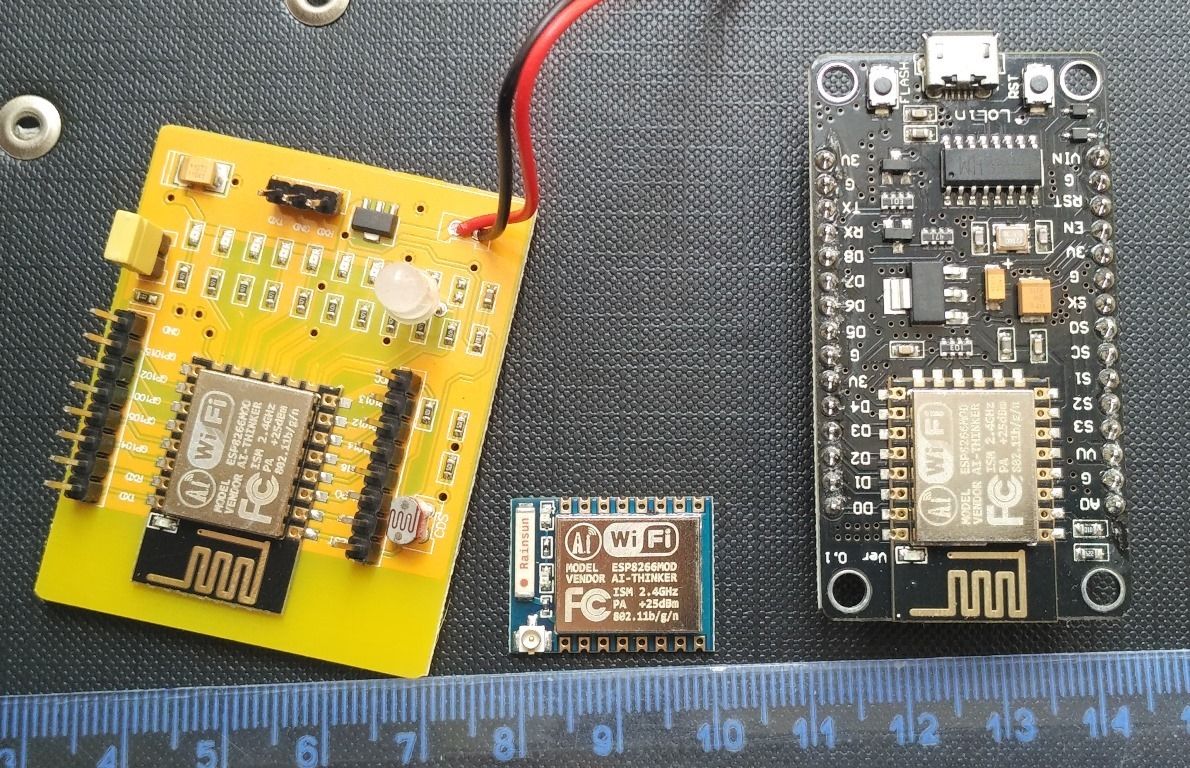
Many of those who have turned electronics into an entertaining pastime often ask themselves the question, “Why do I do it? I read magazines and books from the section “Electronics is easy” and other literature from the “For Dummies” series. I don’t have the patience for more complicated and intelligent books.
And further reasoning goes approximately along the following lines: here, I made a simple amplifier, assembled a few blinkers (light effects), a charger. And it turns out that all this can be bought, if not new, then at least used, and it will be all better quality, in original cases, even in working order. The question is, where is the benefit, the economic effect of such activities?
But, perhaps, it is not necessary to fill your head with such thoughts. After all, many examples do not bring any benefit. Such activities are called a hobby, a passion that is unlikely to find meaning. It’s like love because few people can answer what it means. Or fishing – it is easier to go to the store and buy fish than to stand with a fishing rod near the river and feed the “angry mosquitoes. So such fishermen just do not count. The same can be said about hunters: a captured duck is small in size – much smaller than a purchased one.
The same goes for electronics or sensors, the fascination for which at a young age comes simply out of curiosity: how does it work, and why does it work this way and not that way? Besides, this is not an easy science; it requires a lot of effort to study the theory, create the first working devices, and later, when you gain experience, develop your own circuits and repair commercially made equipment.
Serious technology
One of the “obscure” directions in amateur electronics can be considered robotics. Designs of such “robots” most often represent a small cart, bypassing obstacles, moving along a given route, and being controlled by the control panel.
It would seem that there is nothing wrong with it? The uninitiated, seeing the end result, would simply say, “So what?” But those who are engaged in it in earnest, this topic is so close, important and understandable that in this direction on the Internet you can find more than one or two forums, and even download books, often in English, on the subject.
And in fact, if you look into it, the construction of “robots” deserves attention. After all, control circuits are most often built on microcontrollers, even the simplest ones, but we should start with a simple one. At first, the “inventor” practices writing short and straightforward programs (no controller will work without a program), and then moves on to complex and large ones. After all, you can learn programming only by starting to write your own programs. It is good if at this point there is a person who can explain where to start and why all this programming is needed.
Amateur electronics is one way to work with your head and hands. After all, not only will you have to learn how to solder well, you often have to do locksmithing operations as well to make sure everything turns out at the highest level. Solve problems that other people solve by simply going to the store, but I did it myself. This is another reason to enjoy electronics as a hobby.
Quite often, it happens that this very hobby smoothly turns into a popular profession. And, apparently, the ancient Chinese thinker Confucius was right when he said something like the following: “If the work you choose is to your liking, then not a single day in your life will you have to work.” Probably, this saying meant that the word work is concordant with the word slave.
So, after thorough deliberation, maybe even under the influence of his good friends, the person decided to take up electronics in his free time to turn it into his hobby: not only bad examples are contagious, but also bad examples good ones. This decision immediately causes several problems, seemingly unsolvable. Here are just a few of them.
How to organize the workplace
This problem is solved quite easily in modern private homes, where a small corner to put a desk can be found anywhere: in the garage, in the basement, in the closet, in a room, and maybe even in the attic. A little harder to do in an apartment building, but if loved ones can understand how serious and useful this hobby, a free corner in one of three or even two rooms will always be found.
Suppose the hobby of electronics will not cease and do not fade in the beginning and will go successfully, then over time. In that case, the amateur – electronics for doing his favorite thing can rent a room to open its repair shop, to turn the hobby into a favorite profession. There are a great many such specialists nowadays.
Most often, electronics is started like this: take a ready-made circuit, buy parts, tools, and go. They take a soldering iron, assemble the first circuit, turn it on, and it works!
The first success makes you move on to repeating other ready-made circuits. But sometimes it is different: the assembled circuit did not work, attempts to “revive” it did not bring results, and soldering irons, parts are thrown into a far corner, sometimes forever. Therefore, the first schemes should be simple that start working immediately. In this regard, classic electronics circuits can be recommended. First of all, these are generators based on which you can assemble “squeakers and blinkers”.
The first circuit that works is simply inspiring. But in order to have an interest in electronics, not to turn into torture, it is necessary to study the theory, at least of the very basics.
Where to get theoretical knowledge
If a person studied in high school well enough, then Ohm’s law and a few basic laws of physics memorized. Not bad at all if mathematics was also a favorite subject. And if one also managed to master English, that is perfect: most of today’s technical documentation is in English. These academic disciplines make you wonder how all these electronics work and eventually turn them into your hobby.
And don’t think that without special higher education, nothing will work at all. At one time, the magazine “Radio” called many of its authors and readers “engineers without a diploma”, so well they knew about the schematics of various devices and assembled quite good designs.
It also gives recommendations on how to test the parts. It warns that the attempt to “assemble” the transistor from two diodes, which beginners sometimes try to do, will not lead to a positive result, although when testing, the transistor looks exactly like two diodes. Well, almost like the classics: “The motor was very similar to the real one, but it did not work”.
In other literary sources, the authors, on the contrary, do not recommend using parts of dubious origin. It is better to find a way to make money on something and buy parts for experiments. Perhaps this opinion is more correct.


